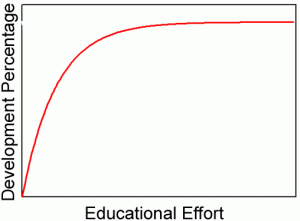One of the More Useful Articles I Have Read in a While
I often read articles that clarify my thinking on certain issues but this one helped clarify my thinking on why I come in conflict with people over a broad range of issues. In-Groups, Out-Groups, and the IDW by Jacob Falkovich. I will add that my one turn-off in this article is the focus on the so-called intellectual dark web or IDW. I am suspicious of faddish-sounding things, particularly in the intellectual world. At this point I am not even sure the IDW is even a real thing (many on whom this title has been slapped reject it). What does seem to be real is that there is a budding resistance to post-modernism and intersectionality coming from folks it would be hard to label as traditional Conservatives (though Progressives and SJWs still try to label every one of their opponents as alt-right white nationalists). I will accept IDW as a temporary and imperfect shorthand for this resistance.
Anyway, here is a sample from the article but I found the whole thing illuminating
In a thorough analysis of the Harris-Klein controversy, John Nerst suggests that what is actually at issue is whether the discussion of the racial IQ gap is a matter of science or of politics. Harris sees Murray as a scientist whose arguments and conclusions fall well within the academic consensus of genetic and cognitive science. Klein sees Murray as a ‘policy entrepreneur’ who advocates for reprehensible conservative policies. The notion that racial differences are genetic (and, in Klein’s understanding, therefore immutable), Klein argues, has historically been used to support destructive policies of bigotry and discrimination.
This isn’t merely a difference in emphasis. Underlying this debate is a divergence in modes of thought so wide that the two men were left practically at cross-purposes.
Harris is a scientist by training, and scientists depend on what rationality researcher Keith Stanovich1 calls “cognitive decoupling.” Decoupling separates an idea from context and personal experience and considers it in the abstract. It is the approach used in the scientific method, when performing thought experiments, and when generalizing principles from individual examples. In decoupling thought, arguments follow one another according to the formal rules of deductive logic.
The contrary mode of thinking sees every argument embedded in a particular context. The context of an idea includes its associations, implications, and the motivations and identities of those who advance it.
Note that this is NOT an article about IQ differences, it is merely used as a convenient example to illustrate differences in two different ways of approaching the problem. But I did think the author did something fun towards the end of the piece -- the author seems to argue that the tribal positions on this genetics issue(and I presume on other things) is almost arbitrary by running a thought experiment of reversing the tribal positions:
...one might re-imagine liberals embracing genetic differences and supporting their position in the following way:
IQ differences are purely genetic, a matter of luck for which neither the individual nor his community bears any responsibility. We should be generous with welfare and assistance towards those who lost out in the genetic lottery, just as we are towards the sick and disabled. Conservatives who argue that the IQ differences are ‘man-made’ are looking to shift the blame to the victims and excuse their own bigotry towards the least privileged.
And the conservative response:
IQ differences are purely environmental. According to evidence, the main environmental difference among blacks and whites is culture. We therefore need to replace the multicultural free-for-all that is hurting American children with traditional American family values, and limit immigration from countries with low-IQ cultures. We need to promote monogamy by cutting support for single mothers. We should probably outlaw hip-hop music too, just in case rap is what lowers black IQ.
This may look outlandish to you but it does not to me. When I grew up in the 1970's, Republicans considered themselves a pro-business party (not to be confused with free market) and Democrats were much more dominated with labor and union concerns. In those days, Republicans were much more pro-immigration, because it brought in cheap labor for its business supporters, and Democrats were much more anti-immigration, because it created low-wage competition for its union supporters. I have seen the tribes reverse positions on a number of issues in my lifetime.


